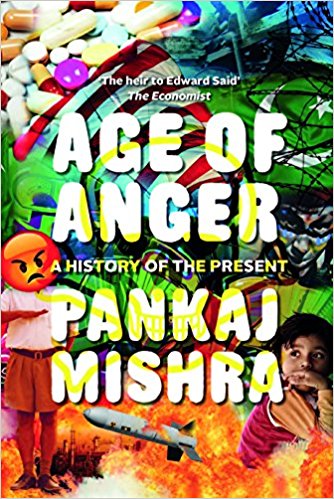Pankaj Mishra’s work includes literary and non-fiction texts and essays that traverse a broad canvas, which could not possibly fit into a single, simple sentence: the present book fits into that description well. Age of Anger weaves across centuries and continents, thinkers and public figures, in an ambitious attempt to outline a genealogy of the present across seven chapters and in about four hundred pages. It is not an easy book to review: it is tempting to offer a gist of Mishra’s compelling narrative but I will track his movements over his chapters in a linear fashion instead, to lay out a sense of how this author folds and unfolds a history of ideas and individuals.
A Prologue maps what Mishra himself has termed ‘peasant, pre-modern and conservative societies’ in Asia, Africa and the European south to gather in hand a sense of the Nietzschean ressentiment: a climate of humiliation and powerlessness in civil society today that is making a ‘global turn’ towards authoritarianism and toxic forms of chauvinism. The next three chapters clear a space among the early birds and the latecomers of modernity from the eighteenth century onwards, a reshaping of social ethics and the coming of age of intellectual and commercial entrepreneurs as well as the twentieth century sense of loss. The twentieth century was also punctuated with a search for alternatives to top-down modernization, particularly in the Third World. Appropriative mimicry was the mode, Mishra informs, whereby more and more people became part of the imperialist project.


434543 236801Thanks for taking the time to discuss this subject. I actually appreciate it. Ill stick a link of this entry in my weblog. 955237